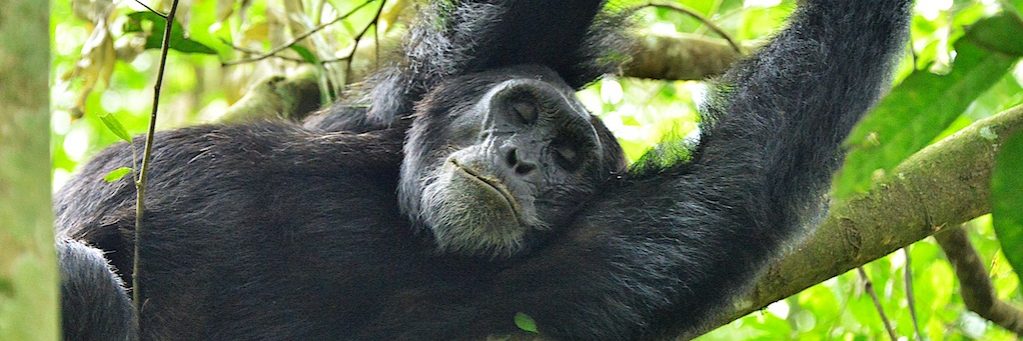A study in Uganda has shown signs of long life and menopause in female chimpanzees. Source: Rod Waddington, Wikimedia Commons
Chimpanzee urine samples collected by Uganda’s Kibale National Park reveal that older chimpanzee females go through hormonal changes very similar to menopause in humans.
This new finding, reported by Dr Langergraber and his colleagues in the journal Science, is the first time signs of menopause have been found in wild, non-human primates.
“Chimps are maybe the most-studied mammal in the world, apart from humans,” Dr Langergraber said.
“But until now, no-one knew about this fundamental trait. They still have surprises for us.”
The study also found that the female chimps lived long after their reproductive years were over.
Aside from humans, the only other wild animals that live past their reproductive years are a few whale species, including orcas, which have been shown to live beyond reproductive years and help raise their grandchildren.
Long-running studies, like the Ngogo project which started 30 years ago, are required to study animals that live a long time, like chimpanzees.
The forest in Kibale National Park, where the chimps live, is protected from hunting, logging, and diseases.
Dr Langergraber joined the project back in 2001 and has since spent a number of months each year observing the chimps.
Dr Langergraber said that this is “easier said than done” and that keeping track of the chimps takes skill, but that over time it becomes possible to predict where the chimps will go.
The study includes collecting urine samples of older female chimps through hanging plastic bags on the forked ends of long sticks and standing beneath the chimps when they are in the trees.
560 urine samples of female chimpanzees were collected and analysed by Dr Langergraber and his colleagues between 2006 and 2018.
Through the urine samples, they found that hormones, including estrogen, dropped; and other hormones, including follicle stimulating hormone, increased as the chimps aged. This is very similar to the hormonal changes in humans as they age.
But it is the extended lifespan beyond the reproductive years that raises questions.
Unlike humans and whales, older female chimpanzees are not ‘hands on’ grandparents, so what is the biological benefit for them living so long?
In chimpanzees, the male offspring stay with the family group and the daughters leave and join another. This is known as ‘male bonded’ primates.
What this means is that older female chimpanzees don’t really get a chance to help look after their grandchildren, nor do they seem particularly interested in doing so.
One possible explanation for this is that because the Ngogo project chimpanzees are so protected from human interference and disease, they are able to reach old age and menopause uninterrupted.





